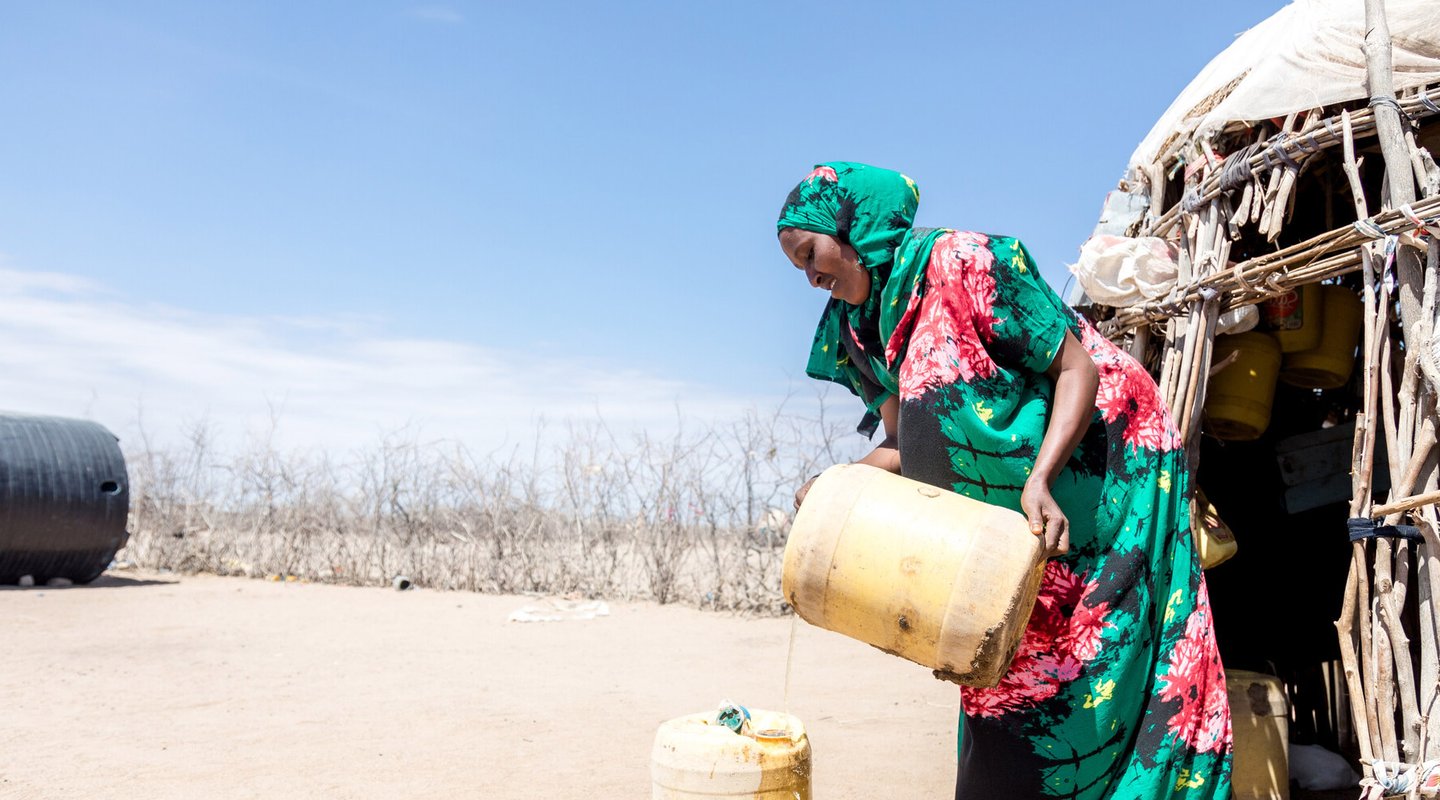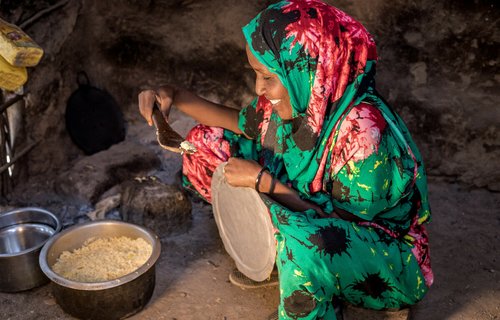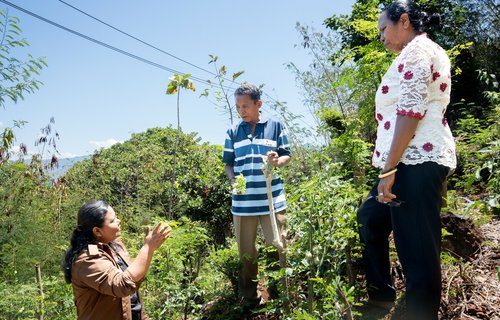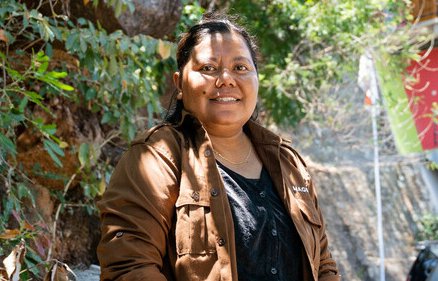Safia’s fighting to protect her village from climate change. Will you act with her?
Donate monthly
Forget Plan A and B. It’s time for Plan She.
8 March is International Women’s Day. On this day and every day, we celebrate the power of women everywhere. But as we amplify their voices and power, more world leaders are failing women around the world. More women are facing the worst effects of climate change. Now these women are fighting back – adapting, learning, planting… protecting their communities from the effects of the climate crisis. This is Plan She. This #IWD2023, will you start a monthly gift and unite with women fighting the climate crisis?
“Women and girls experience the greatest impacts of climate change.”
UN Women's Report, 2022
Loliwe Phiri/Oxfam
Safia’s Plan: defeating drought
Cattle farmer, mother and provider for her six children, Safia made a comfortable life for her family. By selling livestock, she earned enough to buy food for the family and pay for all they needed, including her children’s school fees.
But for the last seven years, Safia has faced the climate crisis head-on. Drought has killed off the pasture, and her cattle along with it. But with cash transfers Safia and her children have money for food and school uniforms, and she can focus on a plan that defeats the effects of drought.
Safia is working with Oxfam’s local partners to bring wells to her community, so she can water her land and keep livestock alive as the climate crisis brings more drought to the region.
Start a monthly gift to back Plan She and unite with the women harnessing collective power to fight the effects of the climate crisis.

"I urge those giving us this aid to continue helping us since the drought is still here with us." Safia Osman, a participant of the Cash Transfer Programme in Badana, Kenya. Image: Loliwe Phiri/Oxfam
Donate monthly
Women and climate injustice
7 in every 10 people living in poverty are women.
Up to 80% of the world’s food is produced by women, but they own less than 10% of the land.
393 million tonnes of carbon dioxide emissions a year are produced by the actions of just 125 billionaires – equivalent to a country the size of France.
Help fight poverty AND climate change
- £3 a month
Could help provide sugarcane saplings and training, supporting communities to prevent flooding damage in Nepal. - £5 a month
is enough for a family of six in Kenya to support themselves for 1 month through a vital cash transfer. - £10 a month
could support a study in Indonesia on sustainable agriculture to improve communities' food security.
How gifts have helped unite women against climate change
200,000 people have been reached directly through Oxfam GB climate justice programmes.
More than 4000 people in drought-devastated Isiolo County, Kenya have been supported with cash transfers in partnership with MID-P
720 farmers in Zimbabwe have been supported with water systems to protect crops from drought, in partnership with the Southern Alliance for Indigenous Resources
Kyo Umareta/Oxfam
In recent years, we have all seen the alarming effects of climate change taking shape sooner than anyone predicted. Your country had its first drought in decades. But in my village, drought threatens lives and livelihoods every summer. Summers which are growing hotter and more devastating.”
Magda, Project Manager with Oxfam partner Foundation for Social Studies and Development (YPPS) in Indonesia. YPPS are local champions for sustainable farming. It’s never been more needed.
How Plan She works

Resilience
Step one of Plan She ensures women have what they need after climate disasters flood their homes or dry out their farmland with drought. With cash transfers, women can build back resilience after disasters, buying food, warm clothes for their children or whatever else they need.

Innovation
Next comes innovation. Your monthly gifts could help fund projects and training in how to adapt farming for floods and drought. These-female-led initiatives help women protect their incomes by growing crops all year round.

Fighting the effects of climate crisis
By uniting together, women around the world are training in sustainable farming. Like finding new ways to stop the destructive effects of typhoons by planting mangrove crops, or preventing flooding with fields of sugarcane. So women won’t just change their lives. They’ll change the future. And you can be part of the change.

"I urge those giving us this aid to continue helping us since the drought is still here with us." Safia Osman, a participant of the Cash Transfer Programme in Badana, Kenya. Image: Loliwe Phiri/Oxfam